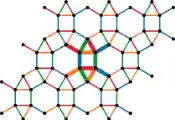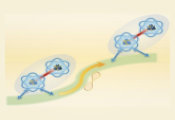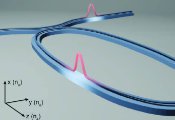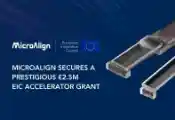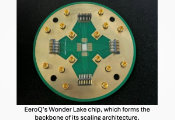Classiq Collaborates With Hewlett Packard Enterprise on Hybrid Quantum Simulation
Tel Aviv, Israel – 29th May, 2024 – Classiq, a leading quantum software company, announced it has developed a rapid method for solving large-scale combinatorial optimization problems in collaboration with Hewlett Packard Labs, the central research community of Hewlett Packard Enterprise (HPE), the result of joint research on the integration of high performance computing (HPC) and quantum computing.
The rising level of maturity on the diverse approaches to quantum computation is now raising questions about how to productively integrate leading edge quantum and classical HPC approaches to solve important problems to the top of the research agenda. As the demand for sophisticated computational solutions increases, the integration between HPC and quantum computing is becoming crucial. From scheduling and orchestration to hybrid computation, these two approaches are converging, creating opportunities for innovative solutions to complex problems. This collaboration between Classiq and Hewlett Packard Labs exemplifies the potential of combining state-of-the-art classical and quantum algorithms to achieve superior results.
The hybrid approach uses the HPE Cray Supercomputing EX system and the massive parallel execution efficiency of HPE Cray Programming Environment for high-performance computing along with the Classiq synthesis engine's ability to synthesize Quantum Approximate Optimization Algorithm (QAOA) circuits to achieve noteworthy results. This solution encapsulates smaller problems to formulate an optimal approach for large-scale challenges. By merging classical and quantum algorithms, this method demonstrates a significant improvement in solving real-world problems efficiently and how to make the potential advantages of quantum acceleration readily available in the HPC data center.
“This collaboration is a testament to the power of combining cutting-edge quantum and classical computing technologies. We are incredibly proud of the work we have done together, which not only showcases the potential of hybrid computation but also demonstrates tangible efficiency improvements,” said Nir Minerbi, CEO of Classiq. “The findings in this paper are a significant step forward in accelerating the integration of quantum computing into mainstream applications.”
Integration of the Classiq engine as backend to Hewlett Packard Labs quantum programming environment will enable abstract, optimized and scalable quantum/HPC software development. By continuing to innovate and develop new solutions, both companies aim to drive the accelerated integration of these key computational technologies, paving the way for future advancements in various industries.



